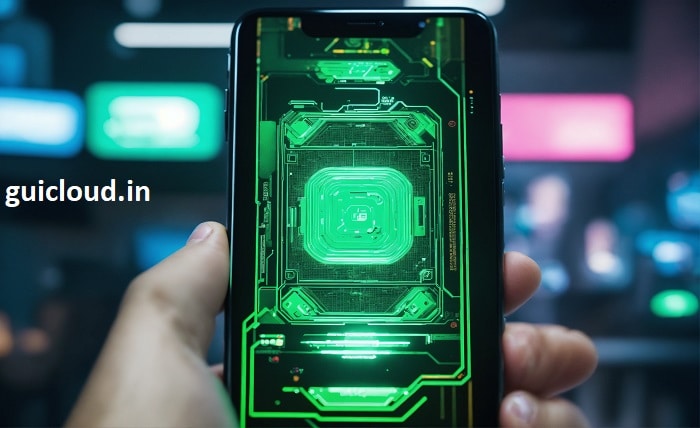iCloud Locked iPhones: What You Need to Know

The term “iCloud-locked iPhone” is often heard in the realm of Apple devices. It signifies an iPhone that has been locked using Apple’s iCloud service, primarily to prevent unauthorized access. Understanding what an iCloud-locked iPhone is, why it happens, and how to address it is crucial for users who might encounter this situation. This guide provides a comprehensive overview of iCloud-locked iPhones, covering all essential aspects.
1. What is an iCloud Locked iPhone?
An iCloud-locked iPhone is a device that has been locked via Apple’s iCloud service through the Activation Lock feature. This feature is designed to protect the phone and its data if it is lost or stolen. When an iPhone is iCloud-locked, it requires the original Apple ID and password used to set up the device for activation and access. Understanding an iCloud-locked iPhone means recognizing the security it provides to device owners.
2. How Does an iCloud Lock Work?
The iCloud lock is activated when the “Find My iPhone” feature is turned on. Once enabled, the device’s unique identifier is linked to the Apple ID, preventing anyone else from using or resetting the iPhone without the original credentials. This section explains the technical workings behind iCloud lock, ensuring users understand the mechanism.
Read more about: luffy gear 5
3. Why Do iPhones Get iCloud Locked?
iPhones get iCloud locked for several reasons, including loss, theft, or when a previous owner forgets to remove their Apple ID before selling or giving away the device. This section explores the common scenarios that lead to an iCloud lock, helping users understand how to avoid this issue in the future.
4. Identifying an iCloud Locked iPhone
It’s essential to identify whether an iPhone is iCloud-locked before purchasing or attempting to use it. Signs include the appearance of the Activation Lock screen, requesting the Apple ID and password. This section provides tips on how to identify an iCloud-locked iPhone, ensuring buyers and users can spot the issue early.
5. Implications of an iCloud Locked iPhone
An iCloud-locked iPhone has significant implications, primarily limiting access to the device’s functionalities. Without the correct Apple ID and password, the device cannot be activated or used. This section discusses the consequences of an iCloud lock, highlighting the importance of resolving the issue promptly.
6. Benefits of iCloud Lock for Security
While an iCloud lock can be inconvenient, it offers substantial security benefits. It prevents unauthorized access to personal data, deters theft, and ensures that lost devices cannot be misused. This section emphasizes the security advantages of iCloud lock, underscoring its role in protecting users’ information.
Read more about: kleki
7. How to Unlock an iCloud-Locked iPhone
Unlocking an iCloud-locked iPhone typically requires the original Apple ID and password. If these are not available, users can contact Apple Support for assistance, providing proof of purchase. This section outlines the steps to unlock an iCloud-locked iPhone, offering practical solutions for affected users.
8. Third-Party Services for Unlocking
Numerous third-party services are claiming to unlock iCloud-locked iPhones. However, these services often come with risks, including potential scams and voided warranties. This section examines the pros and cons of using third-party unlocking services, advising caution and due diligence.
9. Preventing Future iCloud Locks
Preventing future iCloud locks involves steps such as properly logging out of iCloud before selling or giving away an iPhone, and using secure Apple ID practices. This section provides preventive measures to avoid getting locked out of an iPhone, ensuring users can manage their devices effectively.
10. Legal and Ethical Considerations
Dealing with iCloud-locked iPhones also involves understanding the legal and ethical implications. Unlocking a device without authorization can lead to legal issues. This section explores the legal and ethical considerations, emphasizing the importance of lawful and ethical practices in handling iCloud-locked devices.
Conclusion
An iCloud-locked iPhone is a significant security feature designed to protect user data and prevent unauthorized access. While it can be challenging to deal with an iCloud lock, understanding its purpose, implications, and solutions can help users navigate this situation effectively. By following the guidelines and preventive measures, users can manage their iPhones securely and responsibly.
FAQ
1. What should I do if I bought a second-hand iPhone that is iCloud-locked?
If you purchased a second-hand iPhone that is iCloud locked, contact the seller to provide the Apple ID and password or remove the device from their iCloud account remotely. If that fails, provide proof of purchase to Apple Support for assistance.
2. Can Apple unlock an iCloud-locked iPhone without the original Apple ID?
Apple can assist in unlocking an iCloud-locked iPhone if you can provide proof of purchase and ownership. However, without these documents, they are unlikely to unlock the device.
3. Are third-party unlocking services safe to use?
Third-party unlocking services can be risky and are often not recommended. They can void warranties, potentially be scams, and are not guaranteed to work. It’s best to use official methods or contact Apple Support.
4. How can I avoid buying an iCloud-locked iPhone?
To avoid buying an iCloud-locked iPhone, request the seller to remove their Apple ID from the device and check the activation lock status by entering the device’s IMEI or serial number on the official Apple website.
5. What are the legal risks of unlocking an iCloud-locked iPhone through unofficial means?
Unlocking an iCloud-locked iPhone through unofficial means can lead to legal issues, including violating Apple’s terms of service and potential criminal charges if the device is reported as stolen. Always use official channels for unlocking iCloud-locked devices.




